This is America: Showdown at Lake Havasu
"A lot of my memories of my youth was fighting. Not cuz I wanted to but cuz I had to. Whites against Blacks. The Air Force changed everything for me." Rick Menzi, Havasu local
I’m hoping this will be a series “This is America”, if I can get out there and interview enough people across the country. I think it would be interesting to get a variety of views leading up to the November elections.
You can listen to me read this interview here:
One-time or recurring donations can be made at Ko-Fi
Meet Rick Menzi. He’ll pour you a beer and tell you what happened during the 2020 BLM protests at Lake Havasu. Not the version you heard in the news.
But first, just so there’s no misunderstanding, he’ll show you what he thinks of Joe Biden—the president’s face on a roll of toilet paper.
“Yeah, the news will tell you it was all peaceful, but they won’t tell you why,” says Rick. “We have guns here. When those troublemakers showed up in our town, folks stood in front of their shops, guns on display. The police were there in full force.”
This is a hilarious video with comments from a Havasu resident with a Latino accent, standing in front of the shops with the other residents, commenting on all the masks and fear of the “coronavirus, like in Los Angeles”, and of course, he isn’t wearing a mask.
“The protestors walked down Main Street and then they walked out of town,” says Rick with a laugh. “Of course, there was no trouble, what do you think? They came to the wrong town.”
It reminded me of when Jason Aldeen came out with that song, Don’t Try That In A Small Town.
Got a gun that my granddad gave me
They say one day they're gonna round up
Well, that shit might fly in the city, good luck
Try that in a small town
See how far ya make it down the road
Around here, we take care of our own
You cross that line, it won't take long
For you to find out, I recommend you don't
Try that in a small town
Full of good ol' boys, raised up right
If you're looking for a fight
Try that in a small town
Try that in a small town
There was all kinds of backlash to that song. How could he write such racist lyrics, meant to incite violence.
No big surprise, the song blew up and became a US Billboard Hot 100 #1 hit.
Do most Americans really think it’s criminal and racist to protect their own. Go to almost any small town in America and you will see differently. They know what most of the rest of the world knows.
While living in Luxor, Egypt I discovered that just about every man owns a gun, not to mention a very long, sharp knife that they keep hidden in the pockets of their flowing jellabiyas. It’s amazing what they can squirrel away in those jellabiyas.
The men told me how they defended their villages during the Arab Spring. Outside agitators came to stir up trouble but they never stood a chance. Everyone knows everyone else in villages, in towns. The agitators were immediately identified and dealt with.
No left-leaning American would tell a Muslim to give up their guns, but they’d tell it to their own countrymen. Just give in to anyone who invades an American town. You might end up dead but at least you won’t be accused of racism.
Switzerland is about as far removed from Egypt as a country could be. Yet, in Switzerland, it’s estimated there are 2 million privately owned guns—about one for every four Swiss people. That’s a lot of guns for a small country and a lot of people ready to defend their families if need be.
Before coming to Lake Havasu, I’d been in Utah for about a week, 10,000 feet up on a mountain. Wonderful, except for the altitude sickness. Once that was gone, I enjoyed the serenity, the beauty, the hiking and the fresh air. Lots of trucks and lots of guns. From Utah, I went to Lake Havasu, curious to see this town that the locals claim is the most patriotic city in America. Judging by the American flags, it could be true. Not surprising, it’s Trump country. Most American flags have a Trump flag next to them.
The difference between a liberal city and a conservative one? Los Angeles has a marijuana shop on every corner. Lake Havasu has a gun shop.
I met Rick through a friend of mine. She said I absolutely had to talk to this character. Everything was nondescript and colorless—the neighborhood, his house. Really quite boring and I wondered what could possibly be so interesting about this guy.
But then we walked into his house. I thought I’d walked into a bar in some Middle American town. Well, I guess I had.
First thing Rick did was offer me a beer, poured right out of the tap.
And then we got down to the serious business of drinking (one beer for me) and reminiscing.
The first thing he mentioned were the power lines outside. There are a lot of them. They’re ugly and obscure the view. Rick bought his house in 1995 before all the lines were put up. He said Trump’s son, who, according to Rick, owns a lot of Lake Havasu property, promised no power lines if you bought houses there. But that promise was never kept.
That hasn’t stopped Rick from supporting Trump. About Trump’s felony convictions. “Come on,” he said, “they had two lawyers on that jury, telling them what to do. Nobody on that jury was going to go against what they were told to do. It was a misdemeanor and went past the statues of limitations. So, they took it to New York. I think they'll put him in prison.”
With that introduction, here’s Rick’s story:
A lot of my memories of my youth was fighting. Not cuz I wanted to but cuz I had to. Whites against Blacks. I didn’t know anything different. I was 8 years old when my family moved to Burns Heights, Pittsburgh, Pennsylvania. We were poor and it was cheap, so we thought we’d live there. But it was all Blacks. I got my ass beat twice—bad—and within two weeks, we’d moved out of there.
We moved to Chicago. I grew up on the Southside of Chicago. We were stuck in our neighborhoods. We couldn't go to a Chicago Bears game. It was too dangerous to take the train. When you got off the platform to go to the game the blacks would jump you and take your money. It was like going onto a battlefield.
My parents weren’t about to send me to a public school.
Just to interject, according to the Encyclopedia of Chicago History:
By 1960 Chicago's African American population had surpassed 800,000, almost a quarter of the city's total—up from 14 percent just 10 years earlier. Vast areas of the South and West Sides became densely populated ghetto neighborhoods, and racial segregation was high. Schools in these areas were overcrowded, and some ran on double shifts, with children attending for just half a day. In poor inner-city areas the annual turnover of students exceeded 50 percent, and in some instances it approached 100 percent. Schools in these neighborhoods often fell into disrepair.
I was sent to Catholic School. I had a nun for a teacher, we called her Bomber Bertha. She was short and heavy and tough as nails. I didn't know what to think of her.
My first day, the kid in line behind me tapped me on the shoulder and said, “At lunch you and me fight.”
I prayed he'd get the flu before lunch, but he didn’t, and we fought. We called it a tie and became friends all these years. He's sat right here, in the chair you’re sitting in, with his wife.
Bertha flunked me for English class. She wanted my father to go see her. And I thought, oh no he's going to kick my ass. He comes home and says, “How could she flunk you in English? I couldn’t understand a word she was saying.”
Bomber Bertha was from Eastern Europe. It’s true, she had such a strong accent, nobody could understand her. My dad was a fair man.
Catholic school was crazy but no way as bad as public school. Bertha kept everyone in fear. One time this kid Kelly put nails in a cab driver’s tires. She lined everyone up, stared at us, with the cab driver watching, and then homed in on Kelly. He was the guilty one, and she just knew it.
Right there and then, Bomber Bertha kneed him between the legs, dropped him like a fly and he was screaming. Even the cab driver was shocked. He didn’t want to see that happen to a kid.
In 1950, almost every neighborhood outside the South Side Black Belt was more than 90 percent white. Within twenty years, neighborhoods such as East Garfield Park and Greater Grand Crossing were 90 percent Black. We got pushed out of there.
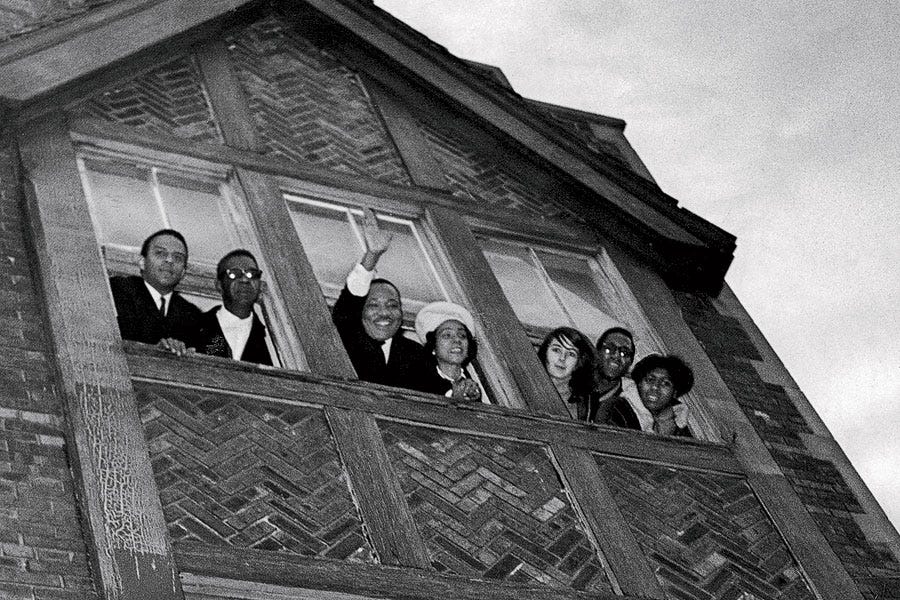
There were so many battles. One time, the Blacks wanted to have a picnic in our neighborhood, and we said forget it, we can't go to your neighborhood. We got in a fight. I was 15. The police took me in, and I ended up in a line up.
The cops had the Blacks come to point us out. Everyone was always afraid to touch the biggest guy, so they’d touch us, the younger ones. That’s where you get the saying “put the finger on you”. I was doing stuff I shouldn't, we all were. I could have ended up in a bad way.
My dad had to get a lawyer. NAACP wanted to put us in jail. Fortunately, I didn’t end up in jail. But I quit high school. I’d had enough.
My dad worked on a steel mill. He was a boiler maker; they repaired boilers for steel mills. It was a rough job. One thing about my dad, he never wanted me to be prejudice. He told me, “Look, when the Italians got here, they didn't like us, and I don't want you to be like them.”
One day he comes home with his metal lunchbox. I'm watching TV, laughing at something on the screen, and he says, “What are you laughing at?”
And then he says, “You’re in trouble with the cops, you dropped out of high school, you’re not sitting on the couch.”
What prospects did I have? I could have gone to work in the steel mill like my dad. But I was lucky to get advice from a relative who had been in the Air Force. I decided to go into the Air Force to learn something. Best thing I ever did.
It’s 1960 and I'm 17. They sent me to mechanic school, and I became a crew chief. In the Air Force there were Blacks who were crew chiefs like me so for the first time we could relate to one another. We all had the same chance, we took it, and we were all equal.
The world opened up for me in the Air Force. I loved my job. I took pride in it. I transferred to Douglas Aircraft in Long Beach, and it was the same. I got to work on some of the most advanced planes there are. Fly in them, too.
I look back and I was a kid from nowhere, going nowhere, and I made one good choice that turned everything around for me. All cuz I took some good advice. People make a difference in other people’s lives. That’s what matters. It could just be one sentence, that’s all it takes. I got married, had a good life, I have my kids and my grandkids.
That Black Lives Matter stupidity. After that big black guy was killed, what was his name, George Floyd, and all that “I can't breathe” b**lsh*t.
We have a college here. So, this one white woman starts a BLM movement at the college. A white woman, you got that. They marched down Main Street. And there’s all the locals come out with their guns. There’s this one gal had an AR 15 strapped across her front. And she stood in front of her store like, come on and mess with this store.
Civil War? Nah.
If Trump doesn’t win, I don’t think people will revolt because no one has the balls anymore. I’m glad I’m too old to see what’s going to happen. But I can tell you, people aren’t the same as they were when I was in the Air Force. People were thankful for what they had back then. We all came up the hard way and it made us equal. We learned nothing comes easy, and if you want something bad enough, you got to fight for it. Now, they don’t fight for nothing but a video game.




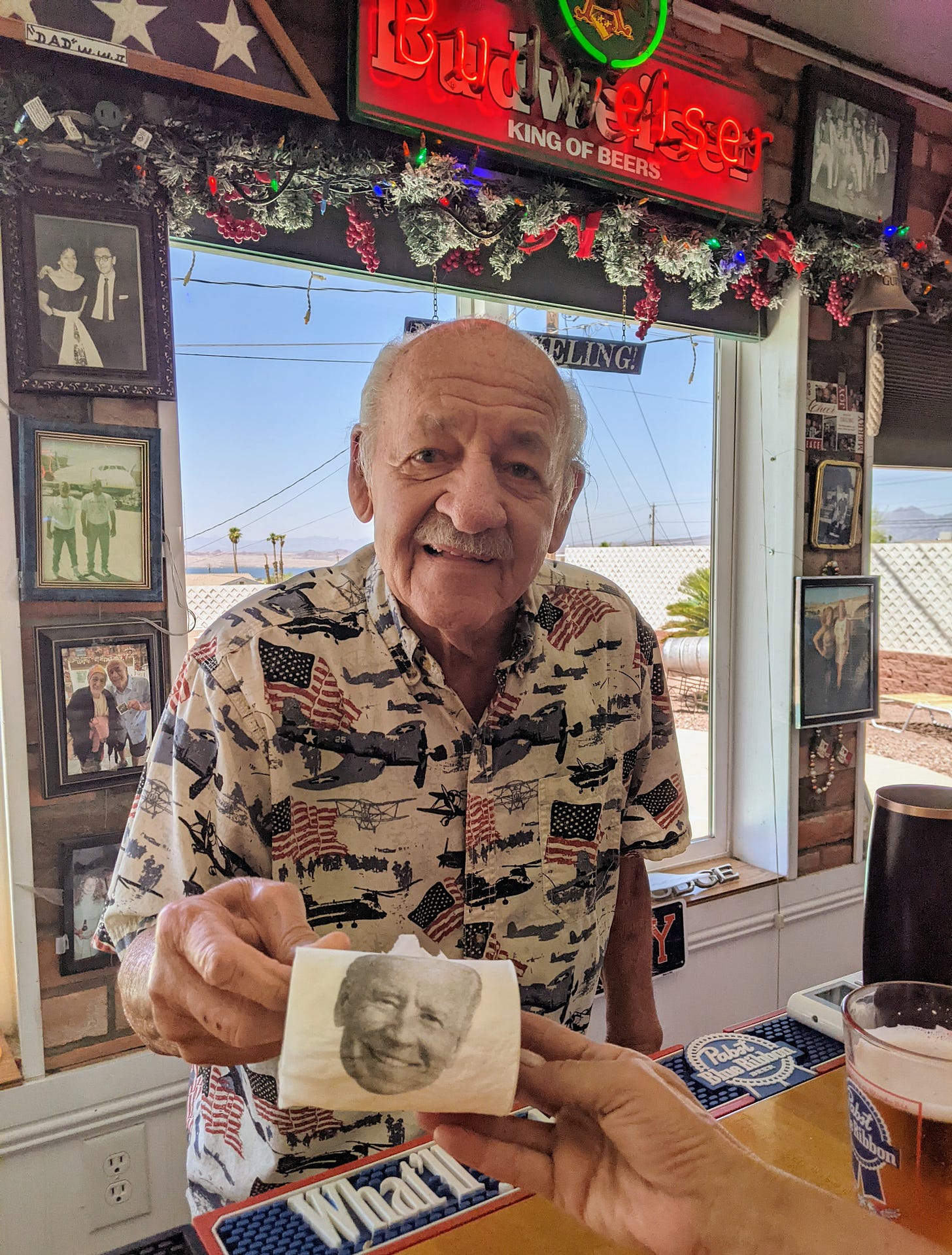
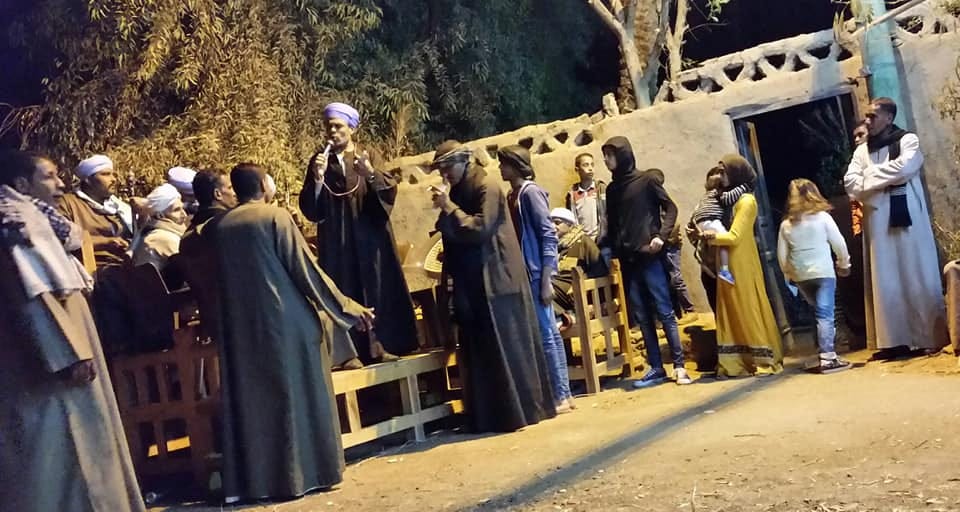
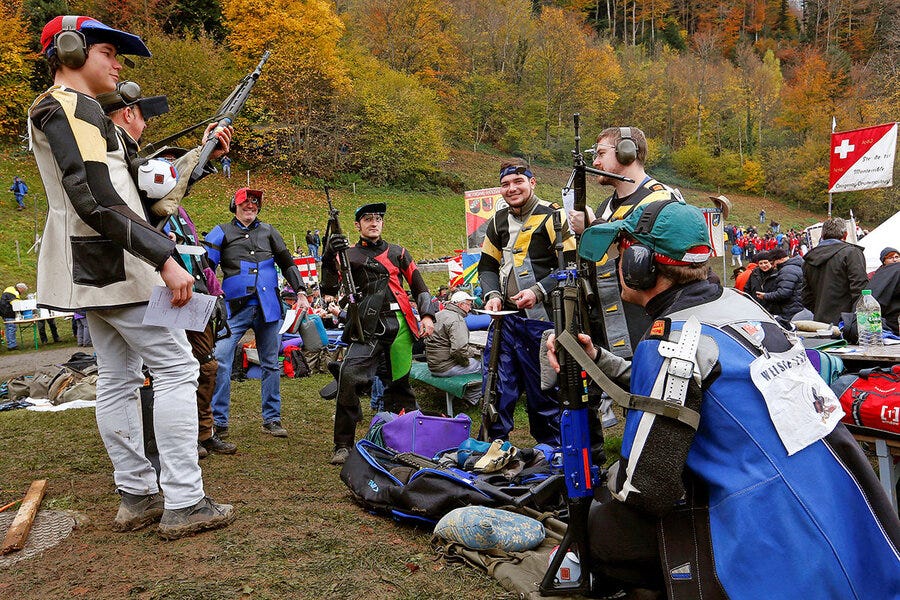
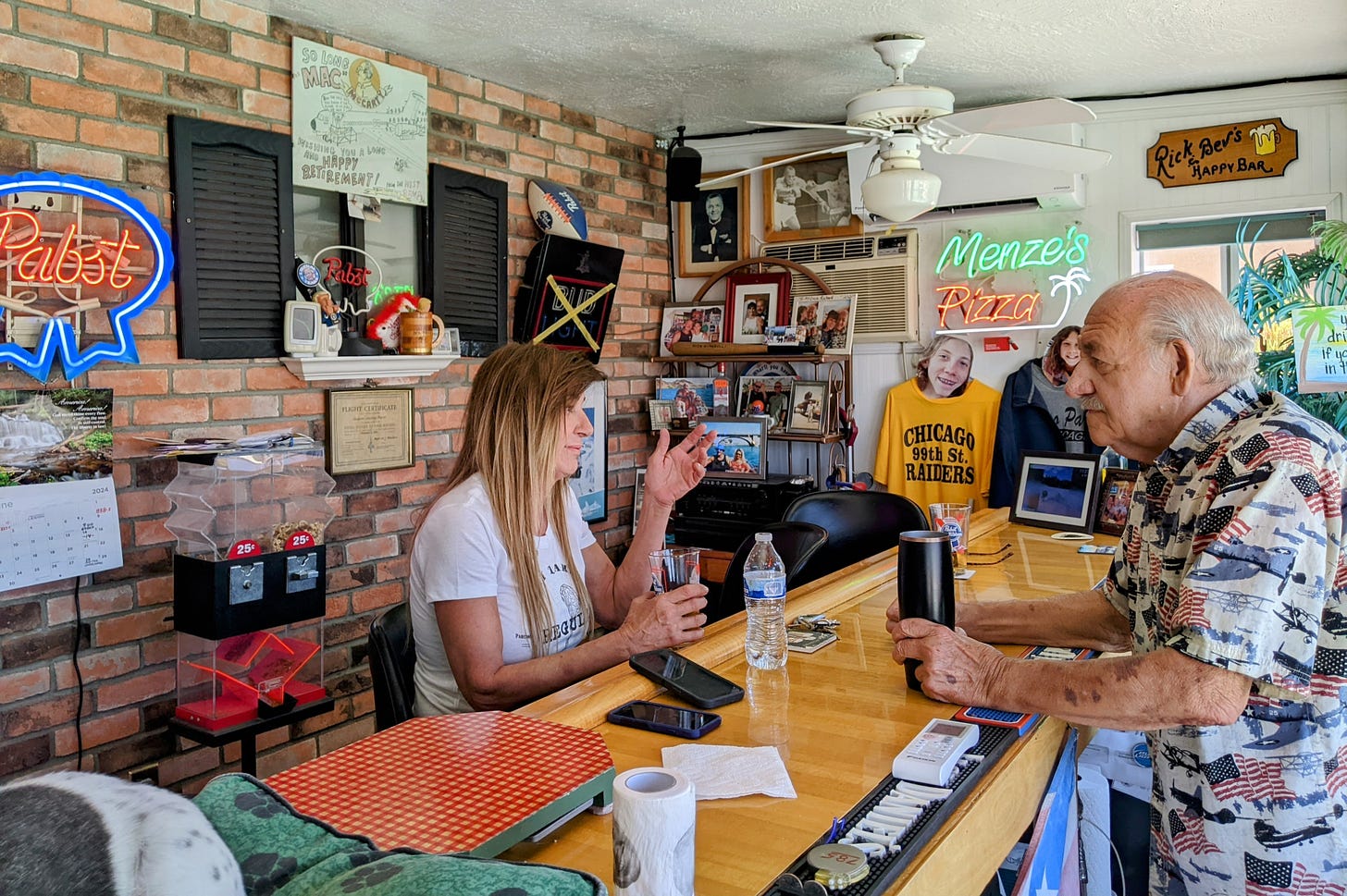
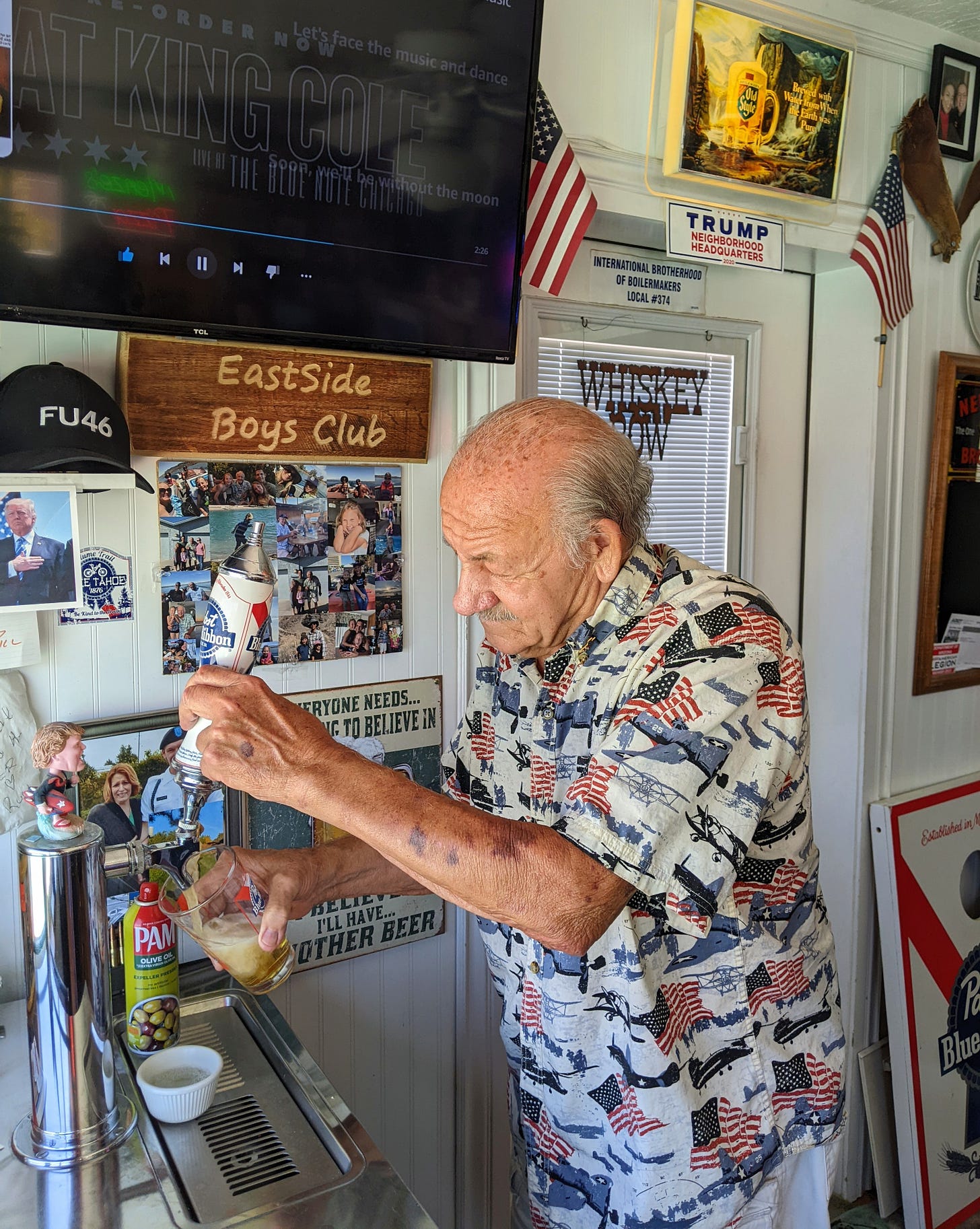
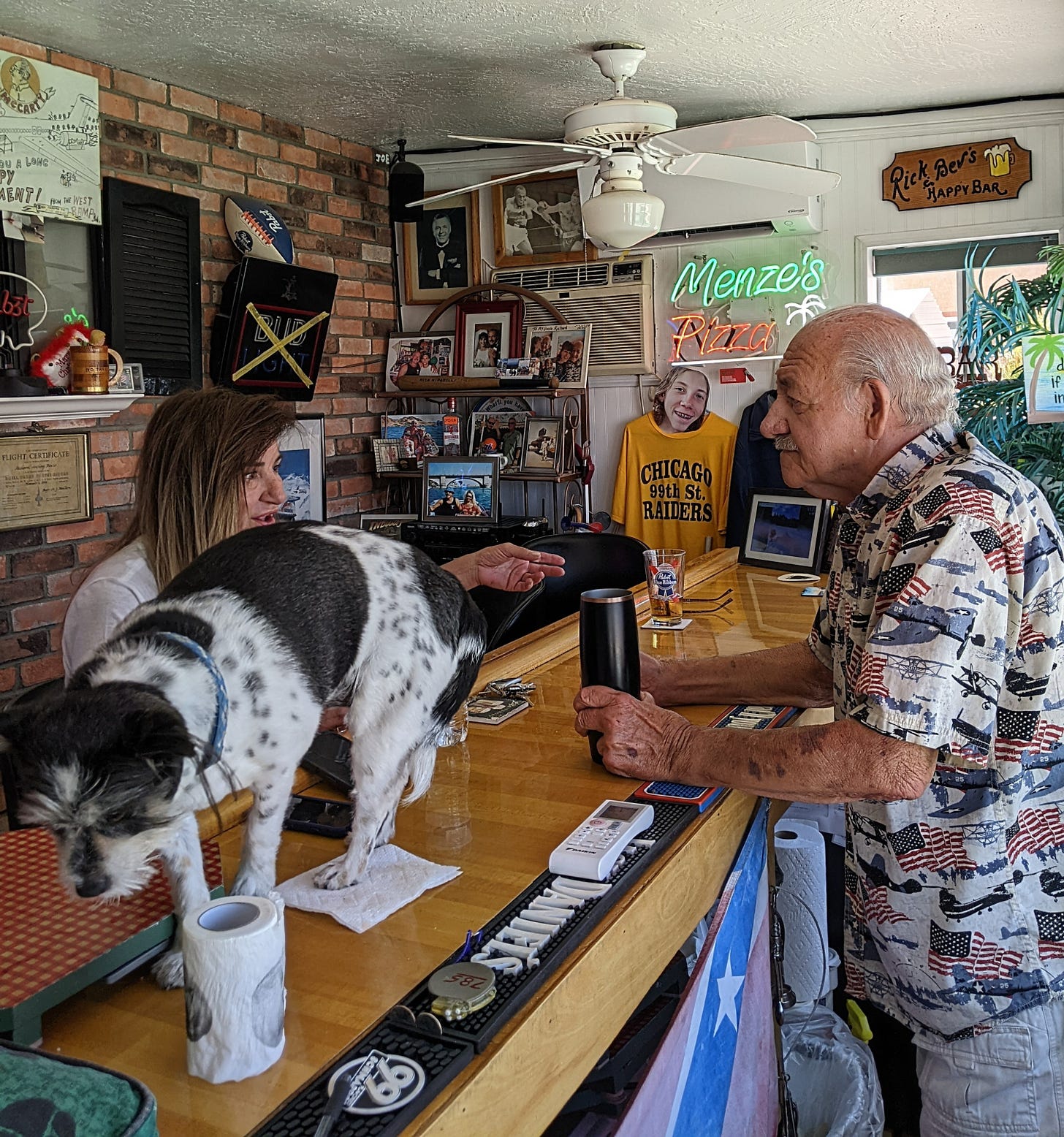
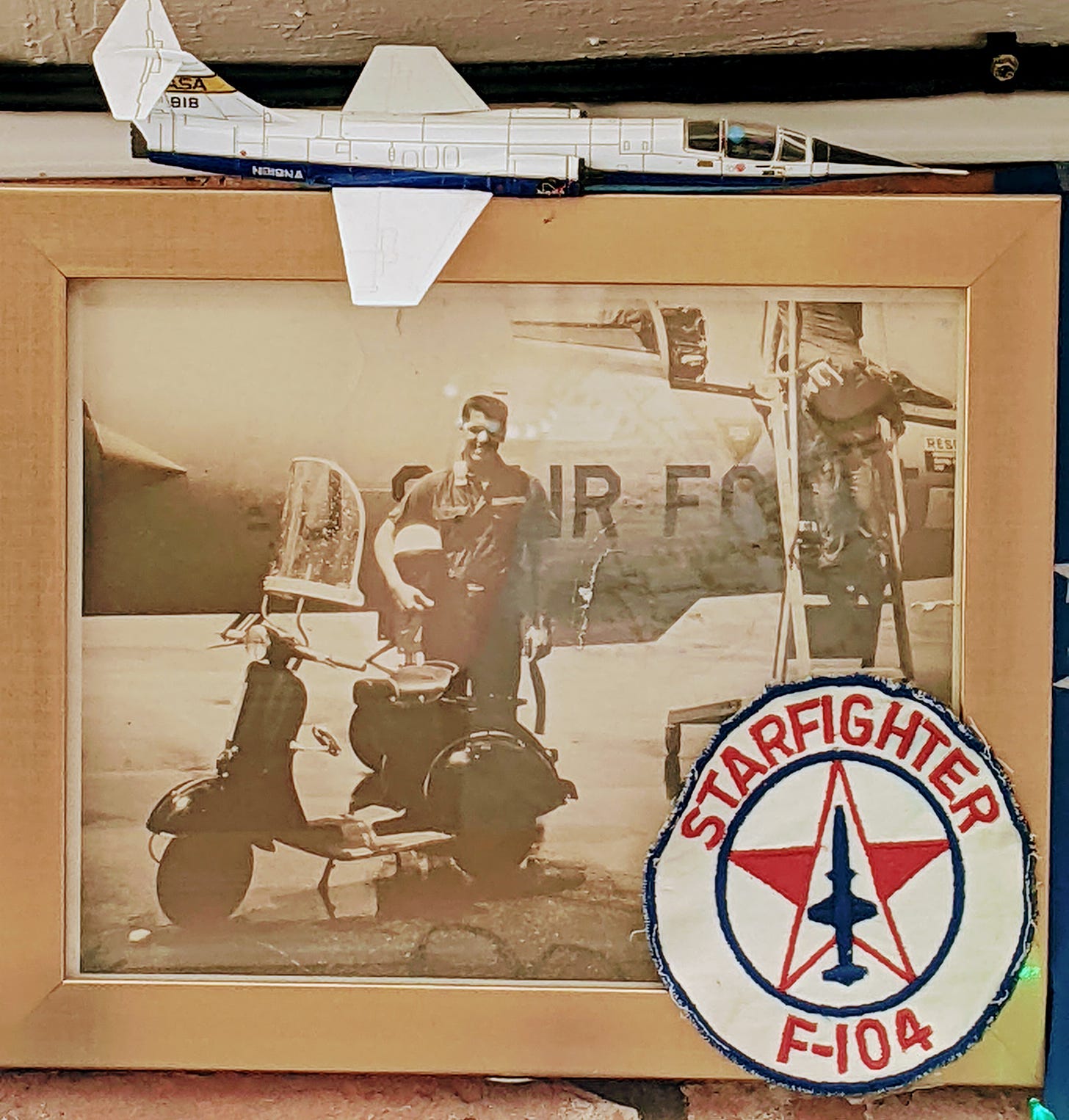
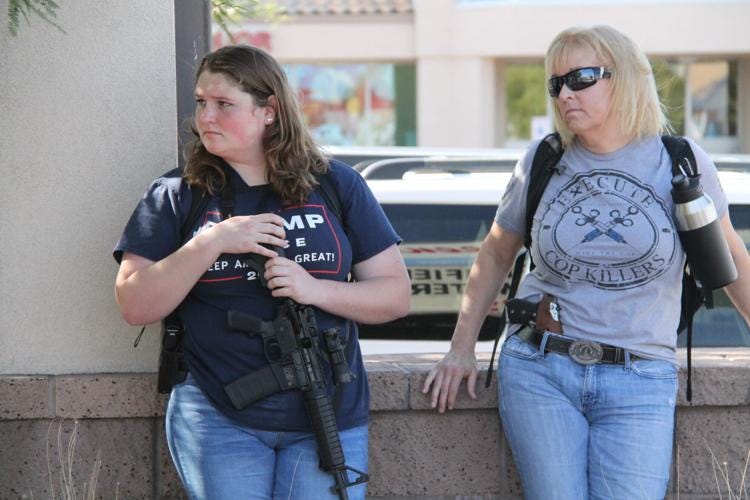
I love this guy. He is absolutely spot on about everything.
That was the worst BLM parade I have ever seen, all white people. what the heck
I moved to the US when I was in 3rd grade. I went to school in France, US govt school. It was a nice school. My dad was state dept. Anyway, I came here and they started bussing - bussing bad kids from Baltimore, into our schools. They were not happy kids. They were up rooted from their homes and bussed many miles to another neighborhood. I felt bad for them. However, they were bullies too. I was a very quiet meek girl and there were some huge kids that terrorized me because I was so skinny and quiet. They thought that was funny. they also threatened me that they would beat me up.
I hated public school all my life because of those early years
This is a great interview, Karen
Thank you for sharing Rick's story and all about him
That would have been a great afternoon with that guy.
When I say we have lost this country, that is what I mean we have lost. We're not going back to his understanding of what was fundamentally valuable, about being a citizen.
This was a great post, well done.